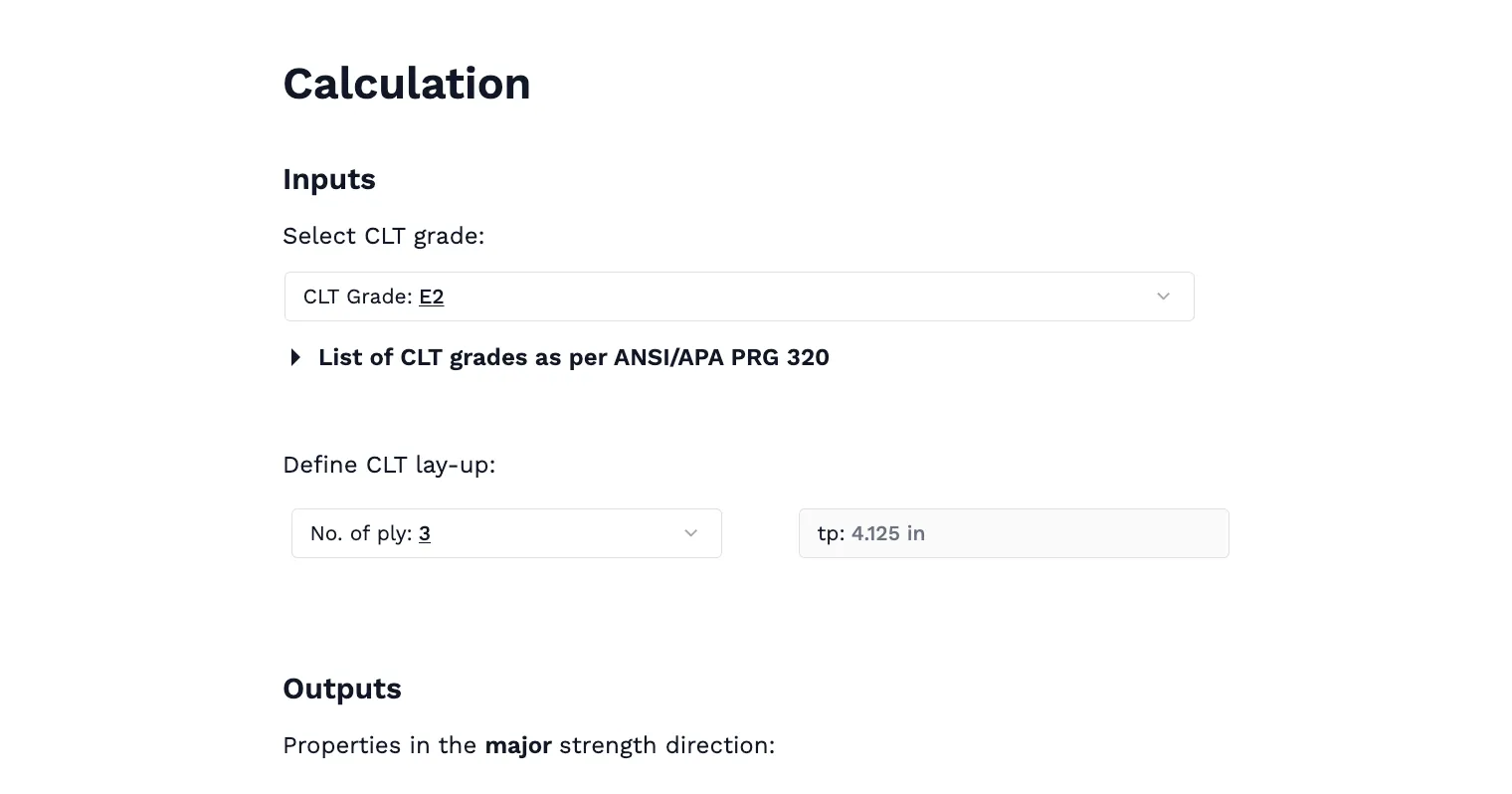Free CLT Properties Calculator to ANSI/APA PRG 320. Step-by-step, engineering-grade tool with downloadable report.

This template is not available yet. You can sign up and create it yourself!
Or let us know if you'd like to be notified when it’s ready:
About this calculator
The CLT Properties Calculator to ANSI/APA PRG 320 is a specialized tool designed to compute the geometric and strength properties of cross-laminated timber (CLT) panels. By selecting the CLT grade and lay-up configuration, users can quickly determine properties such as panel thickness, bending strength, and shear capacity. The calculator uses the imperial system for measurements and adheres to the ANSI/APA PRG 320-2019 standard for performance-rated CLT panels.
This calculator is for:
- Structural engineers who need to assess CLT panel performance in building designs.
- Construction professionals who work with CLT in wood-based construction projects and require reliable material properties.
- Architecture students and researchers looking for quick feasibility checks of CLT panel configurations for academic and practical projects.
The calculator is ideal for rapid design assessments, preliminary sizing, and general feasibility checks. While it provides fast calculations, more detailed analyses might require finite element modeling or reference to CLT manufacturer-specific data.
For a deeper understanding of CLT property calculations, you can refer to textbooks such as "Timber Engineering" by Sven Thelandersson or "Cross-Laminated Timber Design" by Erol Karacabeyli and Brad Douglas.
Engineering templates
Common calculators
Design guides
FAQs
What are the key factors that affect the performance of cross-laminated timber panels?
The performance of CLT panels is influenced by factors such as the grade of the timber, the number of layers in the lay-up, the orientation of layers, and environmental conditions such as moisture content.
What are the common applications of CLT in modern construction?
CLT is commonly used in multi-story buildings, long-span structures, and sustainable construction projects, owing to its strength-to-weight ratio and environmental benefits.
Can CLT be used in seismic and wind-resistant structures?
Yes, CLT panels, when properly designed and anchored, can be used in structures requiring seismic and wind resistance. Design guidelines and calculations need to account for the material's ductility and strength characteristics under dynamic loading.
Learn about the benefits of using CalcTree on engineering projects!





